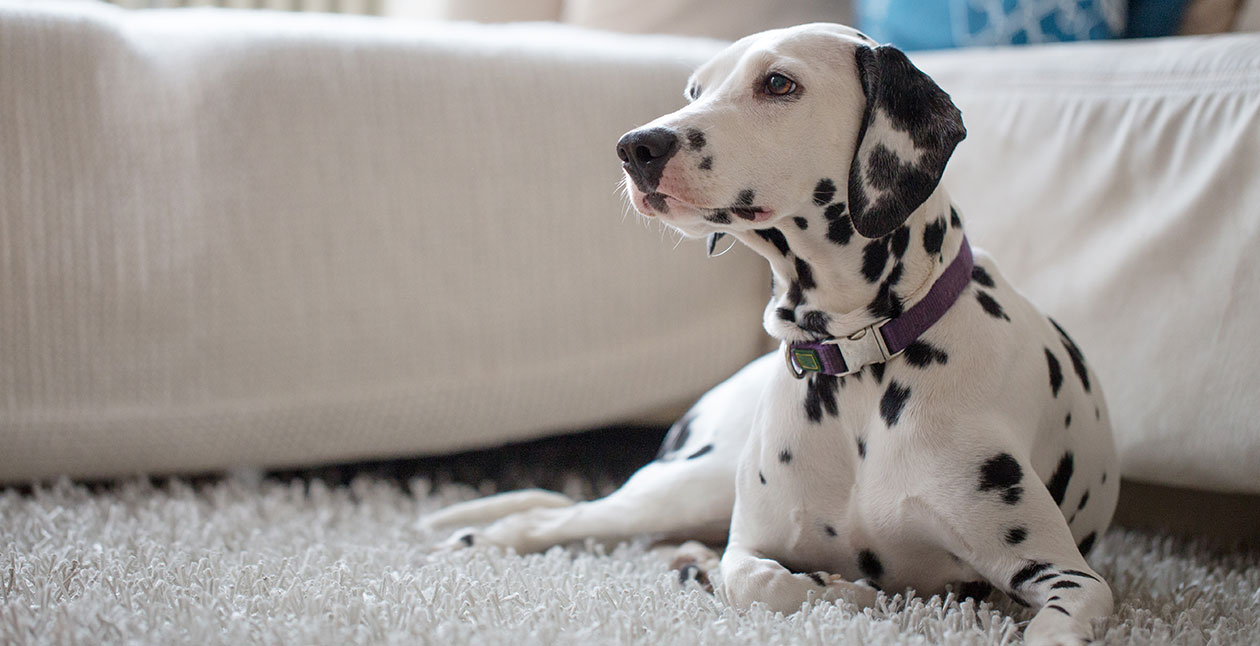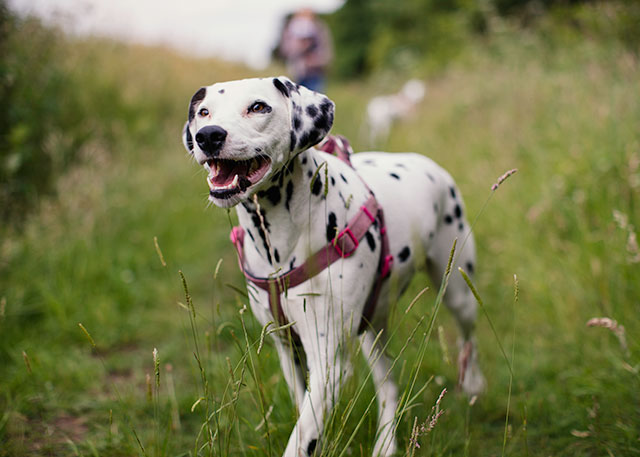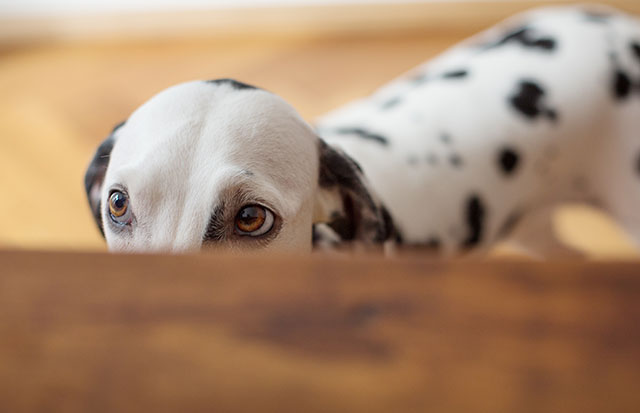
Dalmatian breed guide
Distinctive, strong and muscular. The Dalmatian is a very loyal and devoted family pet and makes a great companion dog. Outgoing and friendly, the Dalmatian tends to be free from nervousness and aggression.
Breed information and advice
Synonymous with the Disney movie 101 Dalmatians, the athletic Dalmatian belongs to the pointer group of dogs. They are outgoing and friendly, and their distinctive spots make them one of the most recognisable dog breeds around. Here’s more you should know:
- A dalmatian’s spots continue to develop from shortly after birth until around 18 months old.A dalmatian’s spots continue to develop from shortly after birth until around 18 months old.
- These spots tend to range in size from 2cm to 6cm.These spots tend to range in size from 2cm to 6cm.
- This dog will typically weigh between 23kg and 25kg, when fully grown.This dog will typically weigh between 23kg and 25kg, when fully grown.
- A healthy Dalmatian will usually live for 10 to 12 years.A healthy Dalmatian will usually live for 10 to 12 years.
Typical size of a Dalmatian: Large: 48cm-58cm

Recommended exercise and nutrition
Dalmatians require more than 2 hours exercise each day, which should be considered before you choose this breed.

Common health problems and illnesses
There’s no reason why your Dalmatian shouldn’t live a long and happy life. However, being aware of the ailments your dog will be more prone to, along with the associated symptoms, can help you to deal with any health issues that crop up.
Deafness at birth (known as congenital deafness) can be inherited in Dalmatians. How this condition is inherited is not fully understood, but it is believed to be controlled by many different genes, possibly with additional breed-specific risk factors.
The BAER (Brainstem Auditory Evoked Response) test is used to check the hearing of a dog. The test checks if the brain responds to noise (usually a clicking sound) and is a reliable way to see if a Dalmatian is deaf and to what extent. The test does not measure the full range of a dog's hearing; it only checks noises in the normal human range (some dogs will test as ‘deaf’ but can still hear very high-pitched noises).
Dalmatians are also prone to urinary stones, epilepsy, skin allergies and obesity which can cause significant health issues to joints, as well as metabolic and digestive disorders, back pain and heart disease.
Find out about insurance for your Dalmatian
Learn how pet insurance works and what kind of cover you might need for your dog.
Grooming advice
Though they have a short coat, Dalmatians are known to shed and require regular grooming. You should aim to brush your Dalmatian at least twice per week using a suitable brush or grooming mit. Always brush down to the skin to ensure you’re stimulating hair follicles that will encourage shedding.
As with other dog breeds, another area that will need your attention is their teeth, and you should brush these at least once a week to ensure they stay free from plaque build-up and tartar. Nobody really likes a trip to the dentist - not even your dog, but special toothbrushes and toothpastes are available so you can be sure they get their oral hygiene fix.
Fun and interesting facts
- Dalmatians are associated with firefighting, and the character Marshall from the cartoon Paw Patrol is testament to this.
- Dalmatian puppies tend to be born with a plain white coat; their spots only develop around 10 days later.
Important information
The content on this page aims to offer an informative introduction to pet breeds, but does not constitute expert veterinary advice. If your dog or cat falls ill or has an injury, contact your vet immediately.
All facts and figures were correct at date of publication and were compiled using a range of sources.
Discover more breeds
Browse our other cat and dog guides to learn about some of the UK’s most popular breeds.